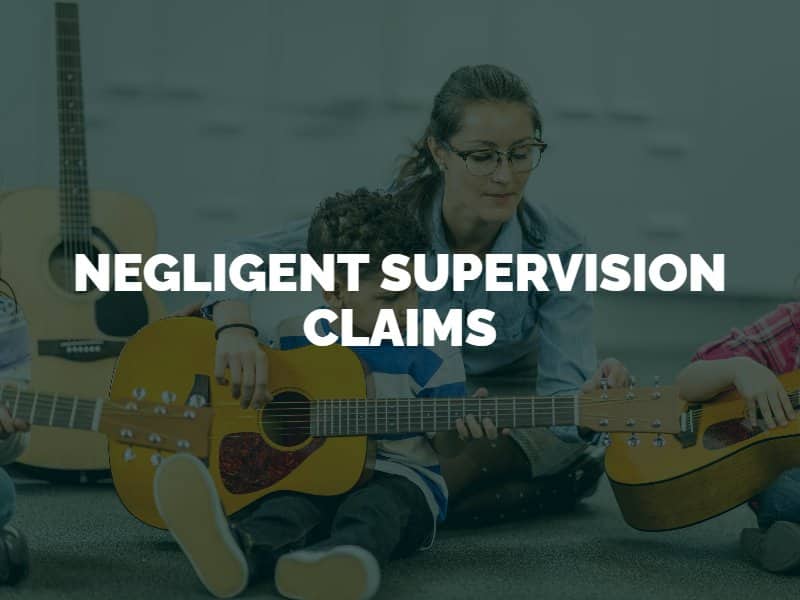Negligent supervision means that someone with a legal responsibility to watch over others fails to do so, leading to harm or injury to others. A negligent supervision claim often involves unsupervised children. The legal responsibility to supervise can be given to many parties, including teachers, babysitters, nannies, daycare center employees, coaches, camp counselors and after-school program leaders. Building a claim around this argument may require assistance from a child injury lawyer in Denver.

Children need adequate adult supervision. Proper supervision is especially necessary in potentially dangerous circumstances, such as during a field trip, in a group of other children, on a playground or near a swimming pool. The appointed supervisor must take this responsibility seriously. The supervisor must pay attention to the children in his or her care, watch carefully for signs of a problem, remain sober (not under the influence of alcohol or drugs), and be prepared to intervene at any moment to protect children from a hazard.
If a supervisor falls short of his or her responsibilities when watching young children and a child is injured as a consequence, it is known as negligent supervision. Negligence in personal injury law means the failure to use ordinary or reasonable care. If a supervisor was not paying enough attention to those being supervised, a personal injury or wrongful death claim can be filed by the child’s family.
Filing a negligent supervision claim can come with many benefits. A lawsuit brought against an individual, church, youth program or another party can hold someone accountable for the harm caused to the child. This could potentially result in safer circumstances for children in the future. A successful claim or lawsuit could also provide justice by reimbursing the family for related losses, such as:
Financial compensation may be available if negligent supervision resulted in a motor vehicle striking a child, a swimming pool or drowning accident, a child being electrocuted or burned, accidental poisoning from drinking or eating toxic substances, choking on a toy or another item, suffering heat stroke from being left in a vehicle, and many other dangerous situations.
During this type of lawsuit, the plaintiff must prove that the defendant is at fault for the injury being claimed. The burden of proof is a preponderance of the evidence, or enough evidence to show that the defendant caused the plaintiff’s injury with at least a 51 percent likelihood. It is up to you or your attorney to establish your claim using clear and convincing evidence of negligent supervision. The elements of proof are:
The evidence available to support a claim may include eyewitness statements, surveillance footage of the incident, employment records and supervision schedules kept by an employer, any previous complaints filed against the school or facility, photographs, physical evidence from the scene of the accident, medical records, and expert testimony. A personal injury attorney in Denver can support your case by collecting evidence of negligent supervision for you and filing your claim before Colorado’s deadline.
For more information about this type of lawsuit, contact Fang Law Firm for a free case consultation.